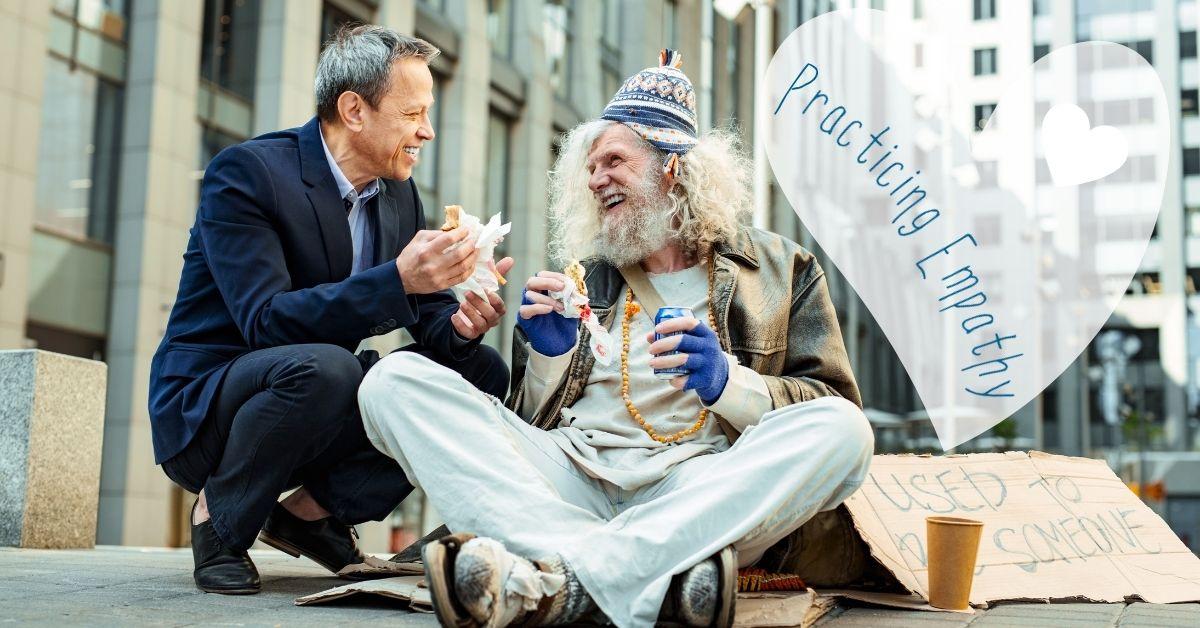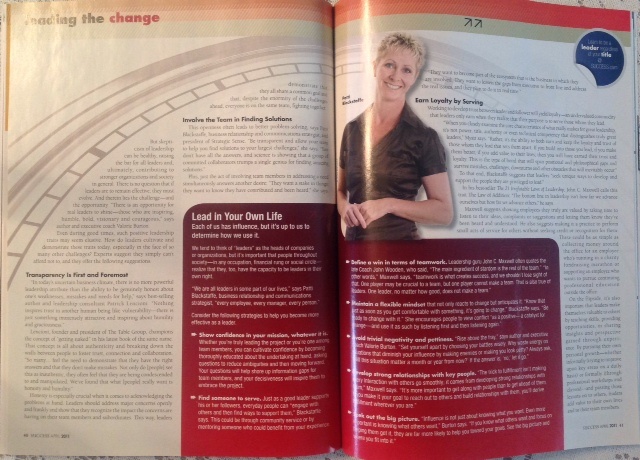My hubby made a huge bowl of popcorn and we settled in watching our first Christmas movies this weekend, one of which highlighted Dolly Parton sharing one of her life/love lessons about change.
So, I started thinking about love, and people, and relationships.
When it comes to love, I believe most people want to do their best to love within the context of our own understanding.
- Parents do their best with what they learned at home and their experiences as children
- Spouses either repeat or try to reinvent what was exampled by their role models.
- Work relationships are attended to by that same person, once a kid, now an adult, all driven by relationship experiences in their past.
Showing Up
How we ‘show up’ at work fully demonstrates an interesting mix of our values, beliefs, influences, and experiences. These things, for example, shape how we respond and react to others at work and in life.
In one of our live streams at KTLOLearn this month, Simone asked; “Can empathy be taught?” and my answer was that I don’t believe we can ‘teach’ empathy per se, but we can show people how to practice empathy. I believe it is within us to develop and hone our empathetic nature to the best of our abilities.
Most individuals are loving human beings, so when articles and books keep saying that leaders are in short supply of empathy in the workplace, many don’t necessarily know how that applies to them. I believe it’s in how we practice it, to break free of how our values, beliefs, influences, and experiences contribute to our instantaneous response.
People Do Care
People who want to improve their empathetic response are open to the fact that maybe people are just not aware of how they ‘show up’ in work relationships and that there may be some ways to practice showing up with more kindness and compassion.
It really doesn’t matter how much psychology research there is out there that proves mindfulness, empathy, and compassion improve productivity in the workplace if we choose not to practice as individuals. So, what’s a person to do?
I say practice! For instance, you can practice with your kids, your spouse, with friends, in the community, and at work.
How to Practice Empathy
There are three types of empathy and ways to practice all three on our own, or with others. Helping kids with these will add to their resilience and their own emotional strength. Here are some suggestions paraphrased from Seph Fontane Pennock* (a download link is below with a ton of information and assessments on empathy for coaches, trainers, leaders, change practitioners)
Cognitive
- Cognitive Empathy – change our perspective to that of the experience of others.
- Listen to feel their situation – no response, no judgment, no solution.
- Be curious, ask questions – paraphrase what you are hearing, and ask if you are correct.
- Look up facial expressions and learn the nuances of the assigned emotions.
- Meditate on the love that is being shared in every situation, daily.
Emotional
- Emotional – feeling what someone else may be feeling, their emotions
- Talk to people you don’t know, ask questions, and be curious about others and their lives.
- When watching movies, step into the lives of the characters and chat about how you would feel if you were them.
- Think about things in a new way – what does it take for the farmer to grow my food, or whom might I be helping if I buy this product.
- Read lots of fiction and put yourself into the challenges and temptations the characters are faced with solving.
- Have open conversations among your team, what it must be like to be your customer.
- Look for commonalities between us as humans.
Compassionate
- Compassionate – taking action to help someone else with their pain or feelings. Just because we are in a pandemic, doesn’t mean we can’t reach out, for instance, we can try to challenge your own biases and shift into a giving stance.
- Find ways to serve, by giving to others such as the food bank or a children’s charity
- Connect to a senior home and start a program reading to those who cannot read to themselves, via live stream or YouTube, ask the home to assist with tech.
- Give your time at a pet shelter
- Create necessity packs for the homeless, keep them handy in your car (socks, toothpaste, gloves, etc.)
- Volunteer to read to school children through their online learning program.
- Sit with your family, as we have done, and choose to redirect gifts toward charities you believe in.
Being an empathetic person takes us out of our rushed and hurried world, it refocuses us away from all we must achieve, the pressures we are under gives us a glimpse into the heart of others. It reshapes us, strengthens relationships, and realigns us with our values. Most importantly, we make better choices as leaders when we approach our lives and our relationships with empathy.
The Author
I’m Patti Blackstaffe and I am passionate about igniting the fusion of technology and humanity. Developing accountable and empathetic leaders of change in technology-driven business is at the core of everything I do. I welcome you to connect with me and my company:
- Twitter: @globalsway @patblackstaffe
- Linkedin: /in/pattiblackstaffe
- Watch recent YouTube ‘Admirable Leaders’ right here on this blogsite
*Sources for this article:
- PositivePsychology.com download by Seph Fontane Pennock to learn more about Emotional Intelligence and practicing for therapy, teaching, or in the workplace. This site is a great resource for coaches and leaders, alike. Seph and his team teach practitioners how to work with others.
- KTLOLearn – my cohorts in leadership, experience, and things IT/humanity on YouTube: Episode 36, playlist Season 2.
- Years of working with leaders and teams in change and transformation.




